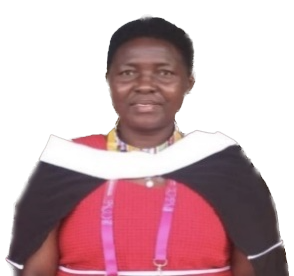 Esther Nyabiage Nyaosi
Esther Nyabiage Nyaosi
Chief Economist
State Department for Housing and Urban Development
Ministry of Lands, Public Works and Urban Development, Nairobi
Public Policy Program (’06)
Please tell us about your career path so far. What is your area of specialization and how did you come to work in this area?
I was first employed in the government in April, 1998, as a Supplies Officer II, one of the lowest cadres in the civil service, in the Ministry of Education, Science, and Technology. Over the years, I have worked in various ministries and held different positions.
After completing my Master of Public Policy degree at GRIPS in September 2006, I applied for a redesignation from being a Procurement Officer to an economist, which was granted one year after graduation. Since then, I have steadily climbed the ranks, and I am now a Chief Economist in the Ministry of Lands, Housing and Urban Development. Since my previous boss retired, I am currently also serving as the Acting Director of the Planning Directorate.
Throughout my career, I have gained valuable leadership skills from working closely with two Principal Secretaries (from 2015-2023) as a Technical Advisor and Personal Assistant. These positions were held in the State Departments for Devolution, Special Programmes (Street Families Board), Gender Affairs, and Culture and Heritage.
The combination of the knowledge and skills acquired through my Master of Public Policy degree from GRIPS and my extensive experience in the public service spanning 25 years has shaped my career path and opened up numerous opportunities.
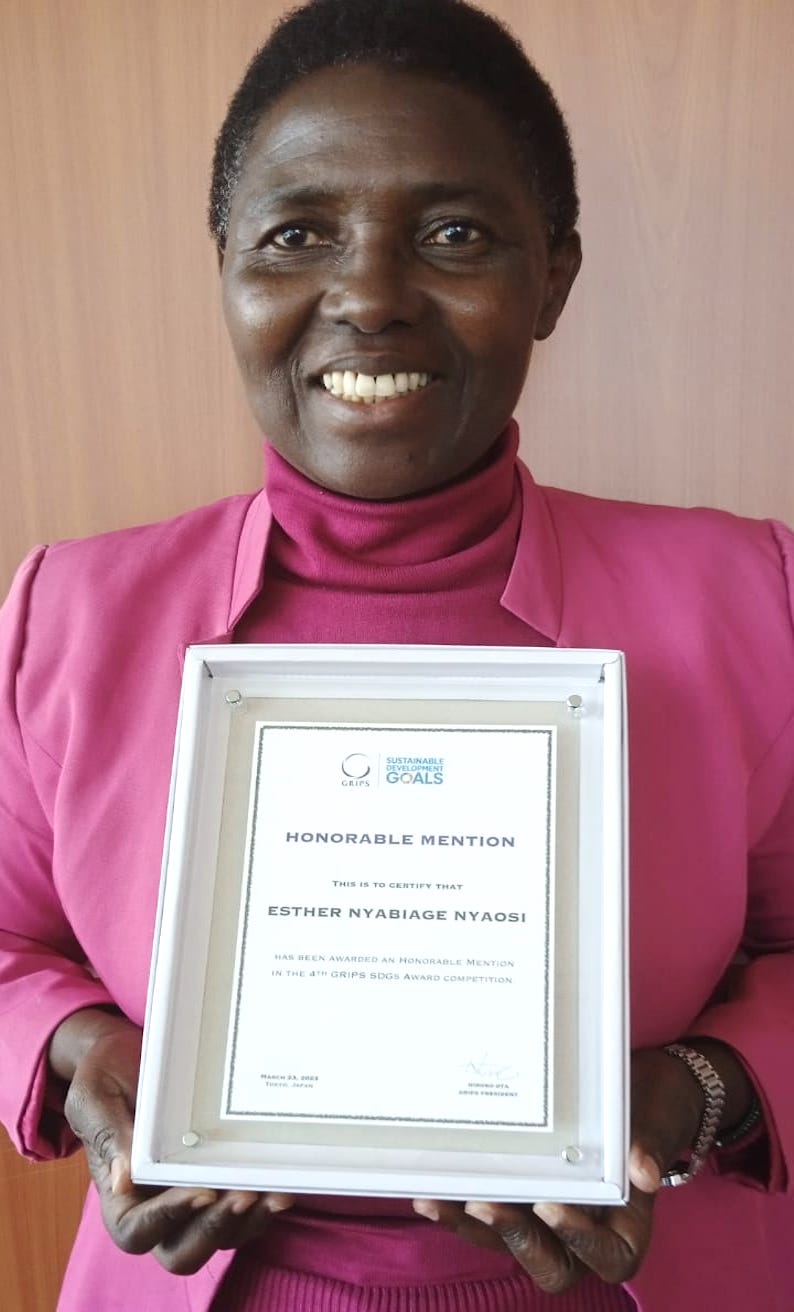
Esther proudly showing her “Honorable Mention”
certificate she received for her outstanding
contribution to “The Ushanga Kenya Initiative”
in the 4th GRIPS SDGs Award competition
You are currently serving as Chief Economist at the State Department for Housing and Urban Development in the Ministry of Lands, Public Works and Urban Development. What are your main roles and responsibilities?
As the Chief Economist at the State Department for Housing and Urban Development, my main responsibilities include participating in and coordinating planning and economic policy issues and statistical programs related to housing and urban development. I also coordinate the development of Medium Term Plans (MTPs) for the housing and urban development sub-sector in alignment with the Kenya Vision 2030. Additionally, I oversee the preparation of inter-sectoral programs and sector-specific plans and provide support in the development and reporting of Ministerial Performance Contracts.
In terms of monitoring and evaluation, I am involved in coordinating and participating in the assessment and reporting of housing and urban development programs and projects. I also oversee the preparation and implementation of the annual work plan for the State Department. It is my responsibility to ensure the implementation of a performance appraisal system within the directorate and oversee the finances and assets management.
Furthermore, I actively participate in bilateral discussions with the Ministry of Foreign Affairs and potential foreign country investors, exploring areas of cooperation in housing and urban development projects under Public Private Partnerships. Lastly, I provide supervision, mentoring, and guidance to the staff, interns, and attachés in the directorate.
In your current capacity, what do you see as the main opportunities and challenges for the Kenya over the course of the next five to ten years?
In my current capacity, I perceive significant opportunities and challenges for Kenya in the next five to ten years. Housing and urbanization play a pivotal role in driving socio-economic transformation, technological advancement, innovation, and investment both in developed and developing countries, including Kenya.
Opportunities lie in fostering collaboration among the National and County government and the private sector, which can accelerate the implementation of infrastructure and housing projects. Partnerships with research institutions and higher learning can spur the exploration of alternative building materials and technology. The development of houses and infrastructure opens up extensive avenues for investment in construction and the manufacturing and supply of building materials. Innovative building technologies, such as 3D printing, require the establishment of a guiding framework for the housing sector. Furthermore, sustained bilateral and multilateral partnerships are vital for financing, technical assistance, and the provision of sustainable housing and urban development. These endeavors align with the government's objectives outlined in the bottom-up economic transformation agenda, focusing on affordable and social housing, as well as initiatives like the Kenya Vision 2030, New Urban Agenda, African Union Agenda 2063, and the 2030 Agenda, particularly goal No. 11, emphasizing sustainable cities and communities that are inclusive, safe, resilient, and environmentally sound.
However, the pursuit of housing provision and sustainable urban development will also face challenges. The rapid increase in the urban population will strain limited social amenities, and the swift pace of urbanization may give rise to informal settlements and urban congestion. Inadequate financial resources pose obstacles to the implementation of planned housing and urban development projects, owing to shrinking fiscal space. Climate change, including floods, poses the risk of damaging existing infrastructure, necessitating substantial capital investment for repairs while the scarcity of suitable land in urban areas constrains housing development. Additionally, global geopolitical shocks, such as the war between Ukraine and Russia, have led to escalated oil prices, which negatively impact the cost of house construction, urban development, and other sectors.
Addressing these challenges and capitalizing on the opportunities will require proactive measures and strategic planning to ensure sustainable, inclusive, and resilient housing and urban development in Kenya over the coming years.
What are some of the biggest challenges you face in your work? And what have been the most interesting or rewarding aspects of your career thus far?
In my current role, one of the main challenges I face is adapting quickly to the new work environment at the State Department for Housing and Urban Development. I am working diligently to catch up so that I can effectively coordinate the development of key documents such as the strategic plan and contribute to the Medium Term Plan (2023-2027) of the Kenya Vision 2030.
Regarding the most interesting and rewarding aspects of my career thus far, they have been quite significant. After graduating from GRIPS, I was assigned to the Ministry of Planning and National Development as an economist in the Infrastructure and Basic Services Department. Through my dedication and the skills acquired during my GRIPS degree, I have progressed from the economist II position to Chief Economist. This advancement has been gratifying, especially when I compare it to colleagues in procurement who have remained at lower job grades. The extensive units I completed at GRIPS (48 credits) provided me with diverse policy-making tools and shaped me in various policy areas.
Moreover, I have served as a Technical Advisor and Personal Assistant to two Principal Secretaries (PSs) from 2014 to 2018 and from 2019 to 2023, supporting them during their tenures at various State Departments. Simultaneously, I have continued to fulfill my role as an economist. One notable achievement was participating in the planning of the highly successful 6th Devolution Conference, for which I received a Certificate of Recognition for my outstanding service. Additionally, I prepared a paper for my PS at the Ministry of Gender Affairs, addressing harmful social practices affecting children's health and education. The responses I provided included domesticating and implementing international instruments, such as the Beijing Platform for Action, Convention on the Elimination of All Forms of Discrimination Against Women (CEDAW), and the Sustainable Development Goals (goal No. 5 on gender equality).
Throughout my career, I have had the privilege of representing the PSs at various boards and accompanying them to high-level meetings, including the TICAD 6 meeting in Nairobi in 2016 and the WTO Ministerial Conference in Nairobi in 2015.
Additionally, I attended the 9th World International Health Economics Association Congress in Sydney, Australia, in July 2013, which provided valuable insights into new developments in health economics and allowed me to connect with colleagues from around the world. This opportunity was made possible thanks to my GRIPS Master's degree, as the fellowship program required candidates to hold a Master's level qualification.
Overall, these experiences have been both fascinating and rewarding, highlighting the positive impact of my GRIPS training and the growth I have achieved throughout my career.
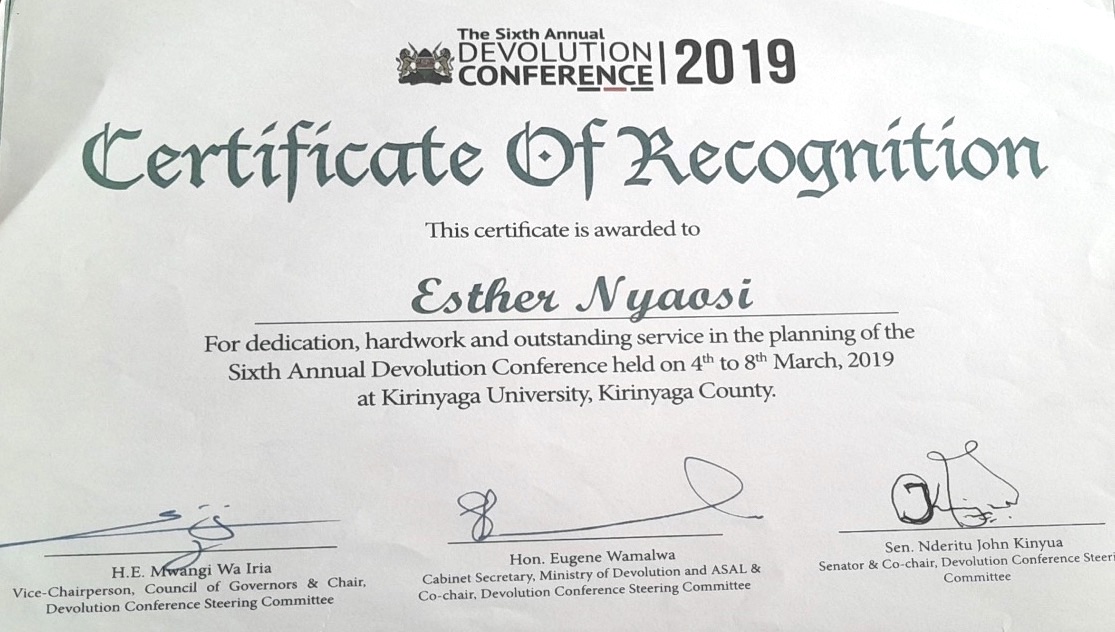
Certificate of Recognition for outstanding service.
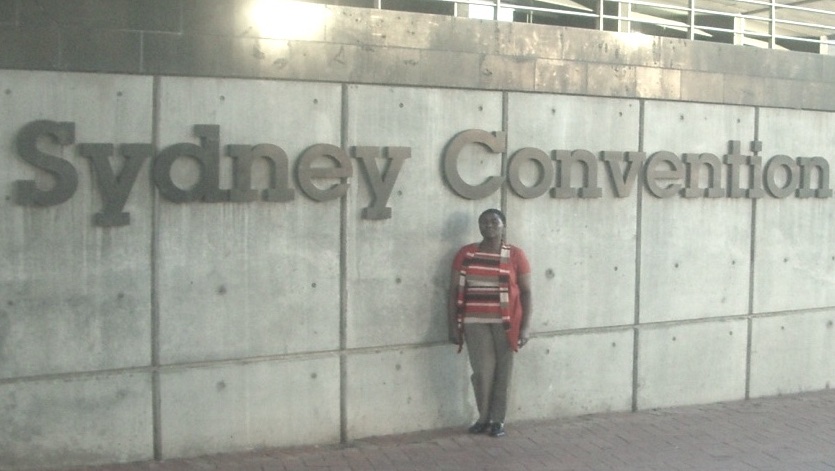
At Sidney Convention Center, Australia, July 2013
You have received an honorable mention in the 4th GRIS SDGs Award competition for your contribution to the project, “The Ushanga Kenya Initiative”. Please tell us more about this project and your role in it.
Ushanga Kenya Initiative (UKI) is a National Government flagship project that seeks to empower pastoral women involved in beadwork (Ushanga) by transforming their art into a sustainable economic activity. The project mobilizes women into organized groups (cooperatives), provides infrastructure, and facilitates access to local, national, regional, and international markets. Its objectives include creating jobs and raising the living standards of women from the pastoralist communities. It also aims at raising awareness of the cultural and economic value of beads, promoting entrepreneurship in the bead sector, and strengthening the bargaining power of women from these communities through capacity building and marketing skills.
The government, through the Ushanga Kenya Initiative, is responsible for promoting culture and heritage in line with the constitution of Kenya. UKI implements various activities to empower women and girls, enabling them to achieve stable livelihoods and socio-economic development. Additionally, UKI collaborates with partners to achieve SDG No. 5 on gender equality.
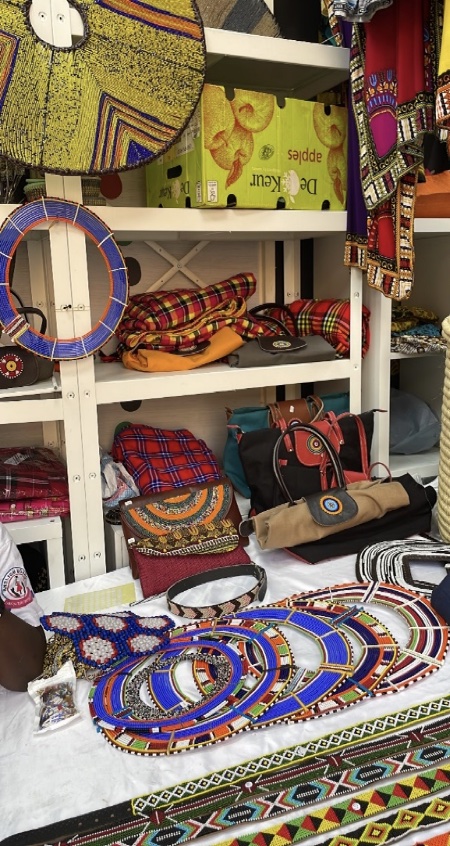
Beaded products produced by women and girls
from pastoralist communities supported by
the State Department for Cultural and Heritage.
For example, with the support of the United Nations Population Fund (UNFPA) and the Anti-FGM Board, women have received training in value addition and the latest beadwork techniques, allowing them to create master bead pieces showcased at major events. This training not only preserves the rich cultural heritage but also provides women with a source of income. This newfound economic empowerment benefits both the women and their families, particularly girls who may not have access to education or other forms of empowerment due to gender-based discrimination.
Through UKI, women have formed cooperatives in seven targeted counties, with the smallest cooperative having 100 registered members. These cooperatives play a crucial role in formalizing the businesses and ensuring compliance with legal requirements. By organizing themselves into cooperatives, women are protected against unscrupulous intermediaries who would otherwise exploit them by purchasing their beads at low prices and selling them at exorbitant rates for personal gain.
My role in the UKI project was to support in preparing work plans, managing performance contracts, monitoring, evaluating and reporting project activities, and attending the UKI Steering Committee board meetings to provide advisory support on planning, monitoring, and reporting.
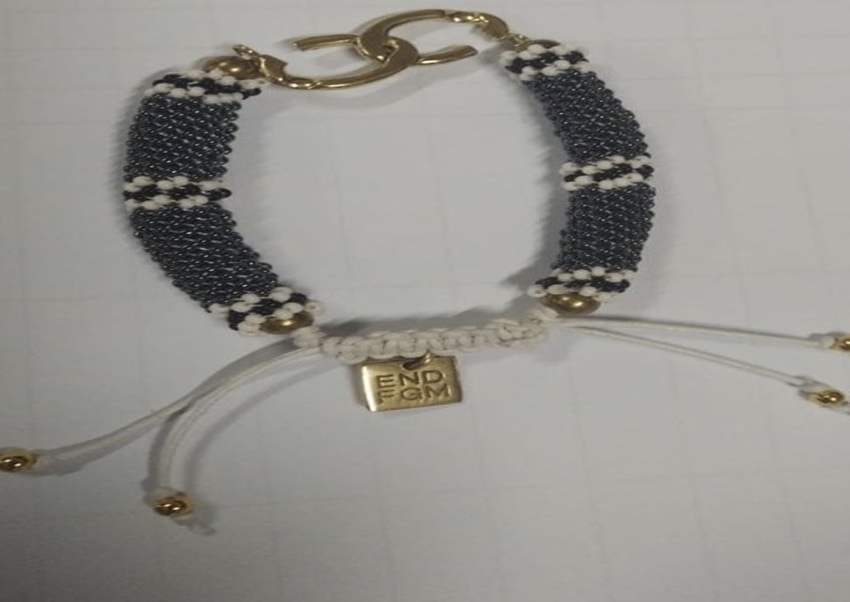
The Johari Bead of “End FGM” used for the global campaign
against FGM beaded by women doing ushanga in Kenya.
The initiative started at the Office of the Deputy President but was transferred to the Ministry of Sports, Culture, and Heritage in 2019. The project is managed by a board comprising members from various state departments and county governments. UKI has successfully empowered women and girls from marginalized communities, with over 4,500 individuals trained in quality bead production, commercialization, and entrepreneurial skills. The project has also supported campaigns against harmful practices such as female genital mutilation (FGM) by designing beads inscribed with "End FGM.”
Additionally, the project has facilitated participation in international events such as the Dubai 2020 Expo, where 28 women beaders were sponsored by the State Department to sell their bead products at the Global Village, generating a total of Kshs. 2.7 million in two weeks. The Principal Secretary for Culture and Heritage, Ms. Ummi Mohamed Bashir, has been actively involved in supporting UKI's goals.
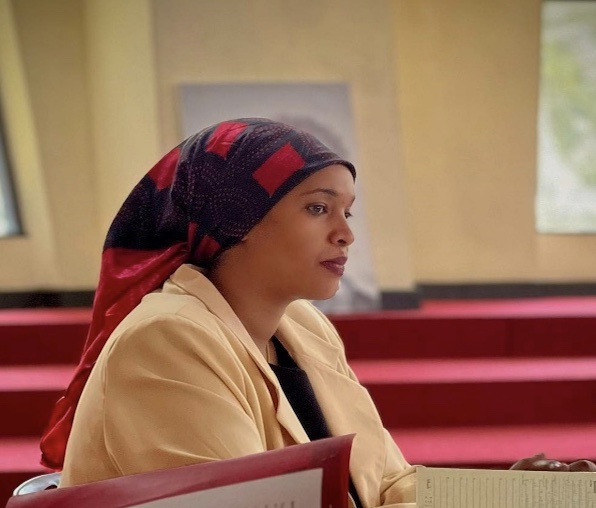
Principal Secretary Ms. Ummi Bashir at the UKI Steering
Board Committee Meeting held on 3rd March 2023
During a recent UKI Steering Committee board meeting, the focus was on the progress made in 2022 and upcoming programs to enhance women's empowerment across the country. The Principal Secretary requested the UKI secretariat to train women to design and produce a bead inscribed with "PEACE" for a campaign against violence in warring counties. Furthermore, I contributed by suggesting that women beaders should exhibit and sell their products at the Commission on the Status of Women (CSW) Forum in New York, USA, which is the principal intergovernmental body dedicated to promoting gender equality and women's empowerment globally.
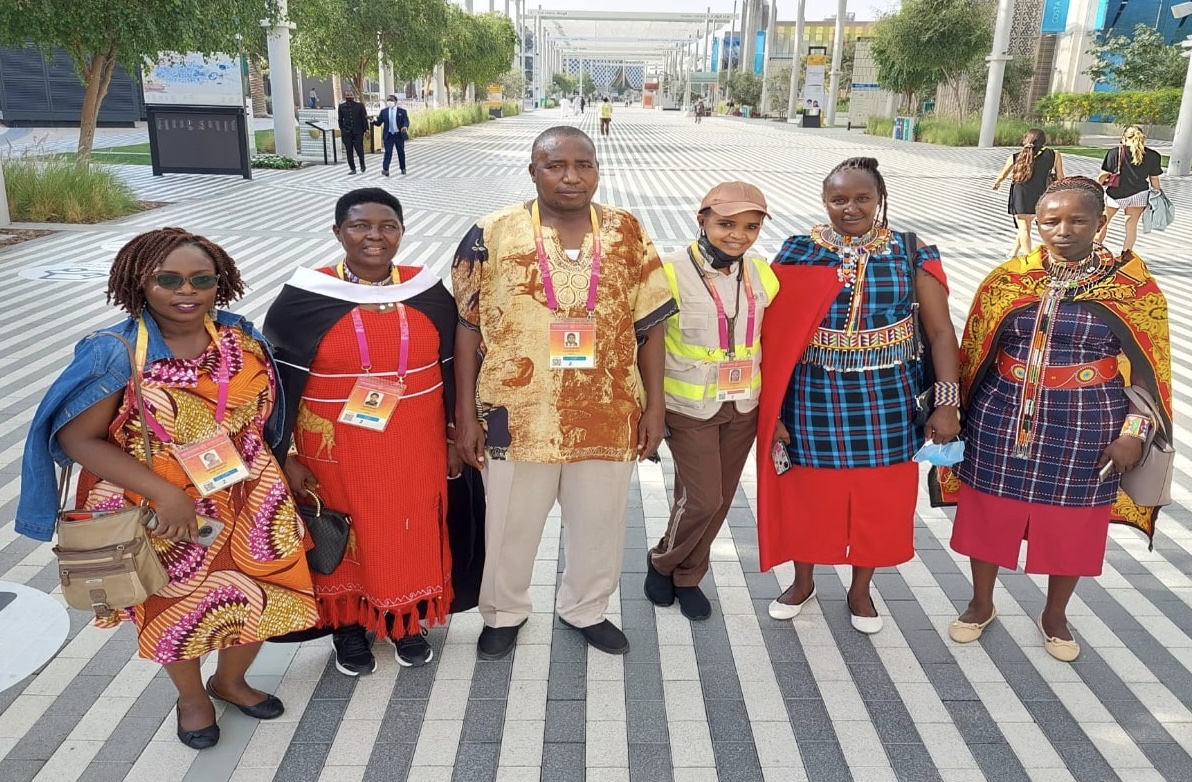
UKI project team from the State Department for Culture and Heritage at the Dubai 2020 Expo
and two women supported to sell at the Global Village and exhibit at Dubai Exhibition Center at Dubai.
Overall, my involvement in the Ushanga Kenya Initiative has been recognized for its positive impact on empowering women and promoting economic development through beadwork.
What led you to GRIPS?
I developed an interest in Japan as early as 1993 when the Japan International Cooperation Agency (JICA) sent volunteers to developing countries to address their challenges. During that time, Ms. Junko Yamasaki, a Japan Overseas Cooperation Volunteer (JOVC), was assigned to Nyamonyo Mixed Secondary School in Kisii County, Kenya, to support teaching math and science. I was also volunteering as a business studies teacher at the same school and we became close friends. I introduced her to my hometown and African food and local traditions while she taught me basic Japanese language skills.
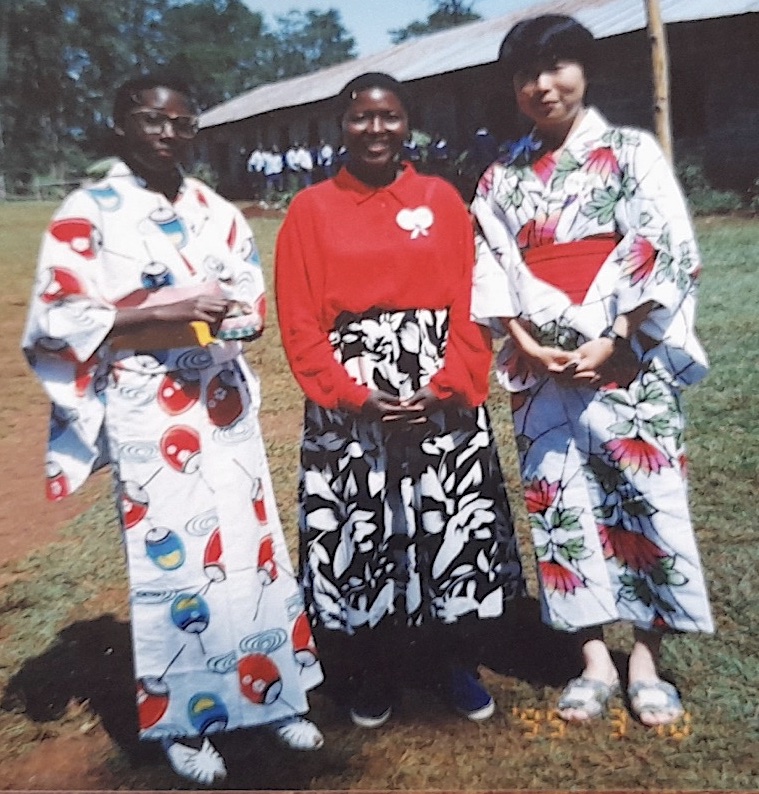
With Ms. Junko Yamasaki during a social function at
Nyamonyo Mixed Secondary school, Kisii County, March 1993
When I returned to the University of Nairobi after my vacation, Ms. Yamasaki continued to visit me and introduced me to the JICA staff in charge of JOCV activities. They generously sponsored me to study computer packages at Data Net Consultants, enhancing my employability skills. I developed a strong interest in Japan during my time at the University of Nairobi, where I enrolled in Japanese language classes taught by a very enthusiastic teacher, who also educated us about Japanese culture and the education system.
After graduating in 1996, I faced challenges finding immediate employment. However, through my JICA connections, I met the Chairperson of Matumaini Children's Home in Ongata Longai, Nairobi. I worked there as a volunteer, teaching orphaned and destitute children basic life skills and farming activities. We grew vegetables and radishes, which we sold to Japanese families in Nairobi to support the children's needs. Thanks to the efforts of its Director, I secured a job as a procurement officer in the government and left the children's home in 1998.
With a desire to pursue a master's degree abroad, I applied to various universities in the UK but could not obtain any scholarships. In 2004, while studying Japanese at the Japanese Institute of Culture Center, I came across an advertisement from GRIPS seeking international students. I applied and was fortunate to receive a fully funded Monbukagakusho scholarship (MEXT) to pursue a master's degree in Public Policy at GRIPS. My goal in pursuing this degree was to acquire the skills necessary to address pressing challenges in my country, such as poverty, inadequate infrastructure, and macroeconomic instability. I aimed to become a proficient public policy expert capable of conducting evidence-based research to influence policy decisions.
What is the most important thing you got out of your studies, and how has your experience at GRIPS prepared you for future endeavors?
Training in GRIPS provided a solid foundation for my career growth and is a prerequisite for promotion in my field. The program equipped me with comprehensive knowledge in various policy areas, including infrastructure, human resource development, research and analysis, project management, international development, women and development, development issues in developing countries, monetary economics, labor economics, science and technology, assistance by international organizations, Japanese development cooperation, education policy, micro and macroeconomics, quantitative work, statistics, and transport policy, among others.
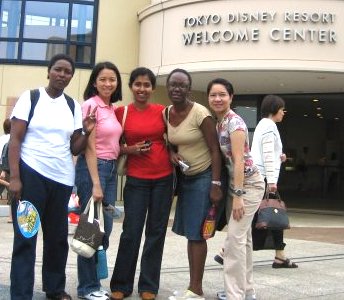
The 5 Great ladies, from right to left: Sheila Caluyaban,
Grace Ssentongo, Amila,Jayarathyne Donna Naling and Esther
during a visit to Tokyo Disney Resort
One of the notable outcomes of my studies at GRIPS was the research skills I acquired. I have contributed to several research projects, including authoring papers such as "Investment in Road Infrastructure for Sustainable Development and Poverty Alleviation in Kenya: An Empirical Review (2006)," which I presented at the Tokyo International Exchange Center. This paper played a significant role in my selection as a Young Professional at the Kenya Institute of Public Policy Research and Analysis (KIPPRA). I also authored a project paper titled "Cost Analysis for the Elimination of Mother-to-Child Transmission at Matibabu Foundation Health Facility, Kenya, in Siaya County, Nyanza Province" in 2013, which focused on addressing the high prevalence rate of HIV infection in Kenya. Furthermore, I authored a research paper titled "The Effect of Infrastructure and Foreign Direct Investment" in 2011, which can be accessed online from the KIPPRA repository
(https://repository.kippra.or.ke/xmlui/handle/123456789/2253?show=full).
Moreover, I have been instrumental in promoting gender-sensitive research at KIPPRA. I influenced the institution to conduct research on a gendered approach to unlocking the potential for sustainable development, which was presented during the 2nd KIPPRA Annual Regional Conference. This research highlighted the importance of considering gender in policies related to water and energy access, women's land ownership rights, challenges faced by women-owned enterprises, and unlocking the potential for women and youth through agricultural finance.
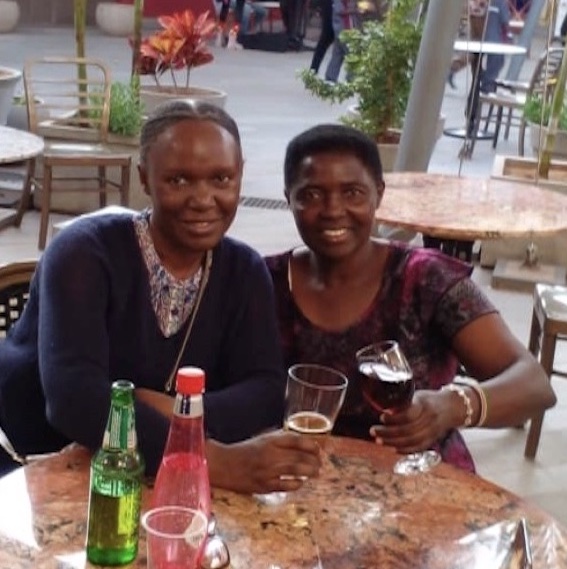
With Ms. Grace Ssentongo, a GRIPS
classmate from Uganda.She came to Kenya in
February 2023 to celebrate her birthday.
Furthermore, I contributed to the integration of the creative economy into national development policies. By coordinating with the State Department for Culture and Heritage, I provided data on creatives, which KIPPRA analyzed and included in the Kenya Economic Report 2022, specifically in the chapter titled "Entrenching a Resilient Creative Economy.”
In my various roles across government institutions, I have participated in drafting key policy documents, including the Policy on Devolved System of Government (2016), the National Gender and Development Policy (2018), County Gender Data Sheet (2019), Kenya Investment Policy (2019), State Department for Culture and Heritage Health Protocols guidelines for prevention of exposure to Covid-19 upon reopening of closed institutions (2020), the National Policy on Rehabilitation of Street Families (2019), and the Impact Assessment of African Indigenous Vegetables Value Chains Operationalization Study (forthcoming).
Overall, the GRIPS program in Public Policy Studies has not only opened doors for career advancement but also equipped me with the knowledge, skills, and expertise to contribute to top management decision-making processes. It has enabled me to provide advisory support on policy matters and make meaningful contributions to my organization.
Have you had any involvement, professional or otherwise, with Japan since your graduation?
Yes, since my graduation, I have been actively involved with Japan in various professional capacities. In December 2010, I participated in the establishment of the Kenya-Japan Alumni Association (KEJAA), which serves as an umbrella association for five alumni associations of Kenyan students who studied in Japan. These associations include the Association for Overseas Technical Scholarship (AOTs), Japan International Cooperation Agency-Ex Participants Alumni of Kenya (JEPAK), Japan Society for the Promotion of Science (JSPS), Ministry of Education, Culture, Sports, Science and Technology (MEXT), and Ship of the World Youth (SWY). As a MEXT alumnus, I have been engaged in KEJAA's activities.
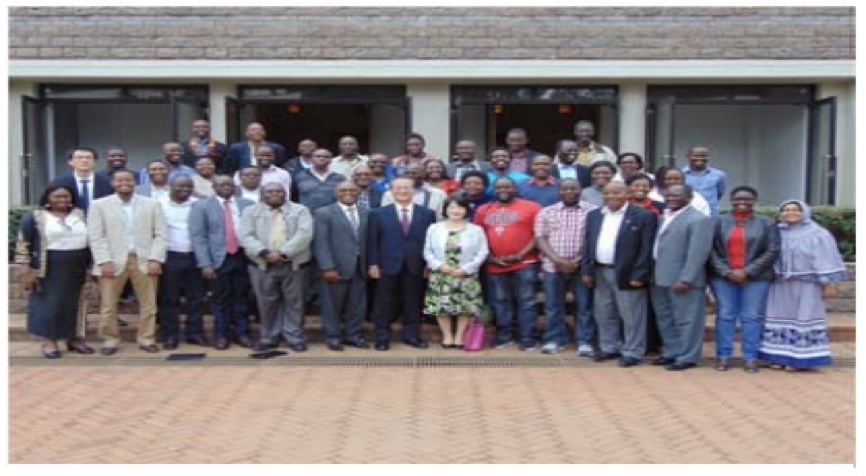
H.E. Amb. Mr. Horie, the then Ambassador of Japan to Kenya
and his spouse attended the 9th KEJAA Annual General Meeting
with some KEJAA members.
KEJAA holds an annual general meeting where we assess our accomplishments from the previous year and plan activities for the upcoming year. During the 9th Annual General Meeting in August 2019, we were fortunate to have Ambassador Ryoichi Horie, the then Ambassador of Japan to Kenya, and his spouse address us. Ambassador Horie emphasized the importance of human resource development and highlighted the theme of TICAD 7 that year, which was "Advancing Africa's Development through People, Technology, and Innovation." KEJAA has been involved in various education and charity initiatives. For example, in July 2011, we visited KWETU-Home of Peace, a rehabilitation center for street families, where we donated food and stationery purchased through member contributions.
Furthermore, I have participated in high-level events like TICAD 6 held in Nairobi in 2016, with the theme "Advancing Africa's Sustainable Development Agenda: TICAD Partnership for Prosperity." During that period, I served as the Alternate Director at the Kenya Investment Authority, appointed by my former Principal Secretary for Devolution. I attended the Japan-Africa Business Forum, jointly hosted by Kenya Investment Authority, JETRO (Japan External Trade Organization), Nikkei Publishing, and Nikkei Business Publications. At the conclusion of the forum, JETRO and Keninvest agreed on mutual cooperation to promote trade and investment in African countries. As a board member, I witnessed the signing of Memorandums of Understanding (MoUs) between the CEO of Keninvest and JETRO, focusing on investment promotion.
Additionally, as a Board Director, I had the opportunity to attend the UNCTAD 14 Ministerial Conference held in Nairobi in 2016, under the theme "From Decision to Action: Moving Towards an Inclusive and Equitable Global Economic Environment for Trade and Development." I also attended the World Investment Forum, which included high-level sessions on investment in sustainable development, investment policy challenges, and enterprise development. My objective in participating in these events was to gather insights and policy trends from world leaders to inform our Investment Authority's strategies.
Subsequently, I provided briefings to my seniors and sought guidance on areas of concern, particularly related to investment and trade at sub-national levels.
Overall, my involvement with Japan since graduation has included active participation in alumni associations, engagement in high-level events like TICAD and UNCTAD conferences, and collaborations with organizations such as JETRO.
These experiences have provided valuable opportunities for networking, knowledge exchange, and contributing to the promotion of trade, investment, and sustainable development between Kenya and Japan.
How do you maintain a balance between your work and the rest of your life? And what is your favorite thing to do when you are not working?
Maintaining a balance between work and personal life can be quite challenging, especially considering the nature of my work, which often requires travel and time away from home. However, whenever I do have free time, I prioritize spending it with my family. I have a wonderful family consisting of two girls and a boy, as well as my husband.
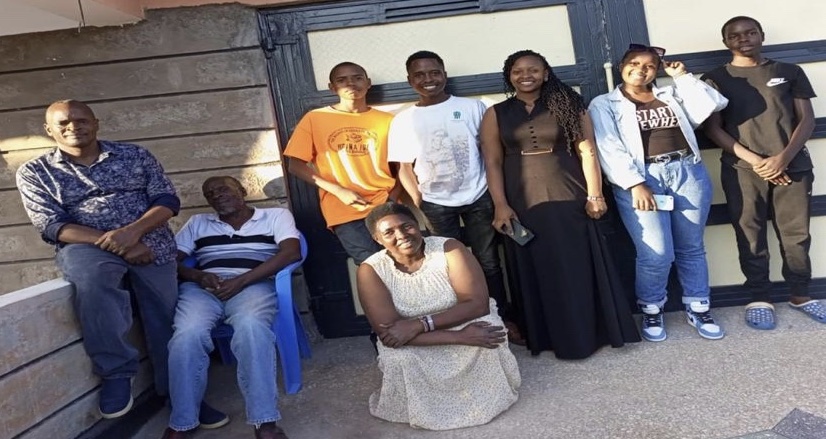
Esther with (extended) family members.
Her husband (seated on the chair)
and her two daughters and son on the right.
Apart from family time, I have a few favorite activities that help me unwind. Firstly, I enjoy reading Japanese language books as a hobby. I also actively participate in small Christian community church services, and cleaning the environment, particularly along roadsides and areas that may be neglected.
Furthermore, I find joy in exploring important places within and outside the country, promoting tourism in my own capacity, as well as meeting with friends.
Overall, by striking a balance between family time, personal hobbies, community involvement, and social interactions, I strive to create a fulfilling and well-rounded life beyond work obligations.
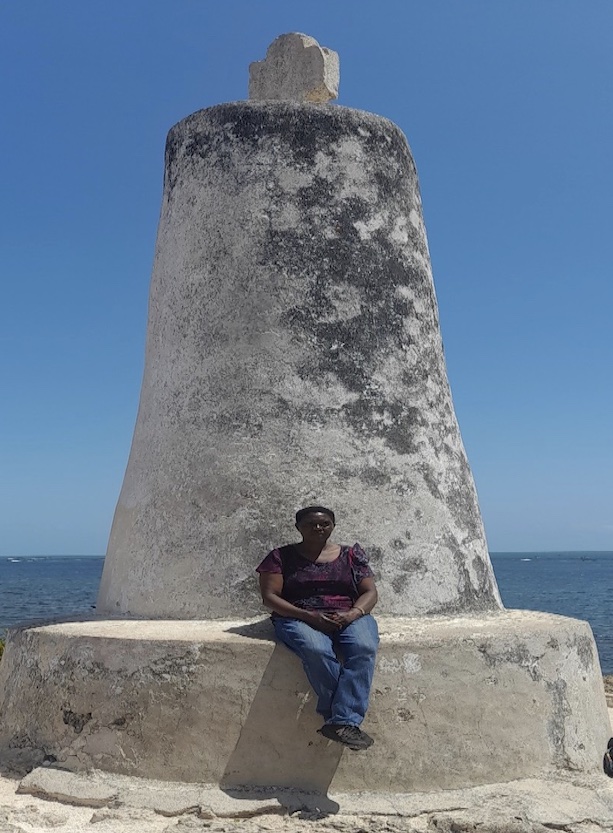
At Vasco Da Gama Pillar in Malindi Kenya,
February 2023
What are some of your fondest memories of your time spent at GRIPS? And what do you miss about Japan?
I thoroughly enjoyed my time studying at GRIPS in Japan. The academic program was top-notch, offering a wide range of units to choose from in public policy. The experience and knowledge I gained at GRIPS were invaluable. The professors pushed me to meet strict deadlines, and their practical teaching approach, drawing from their own government experience, made complex concepts more relatable and easier to understand. Interacting with a diverse group of students provided a rich international experience and excellent networking opportunities.
One of my fondest memories at GRIPS was the field trip to Hiroshima. It was a powerful reminder of the importance of world peace and the devastating impact of the atomic bombing. The experience instilled in me values of respect, kindness, love for one another, appreciation for cultural diversity, and the significance of international relations and diplomacy in fostering mutual understanding between nations.
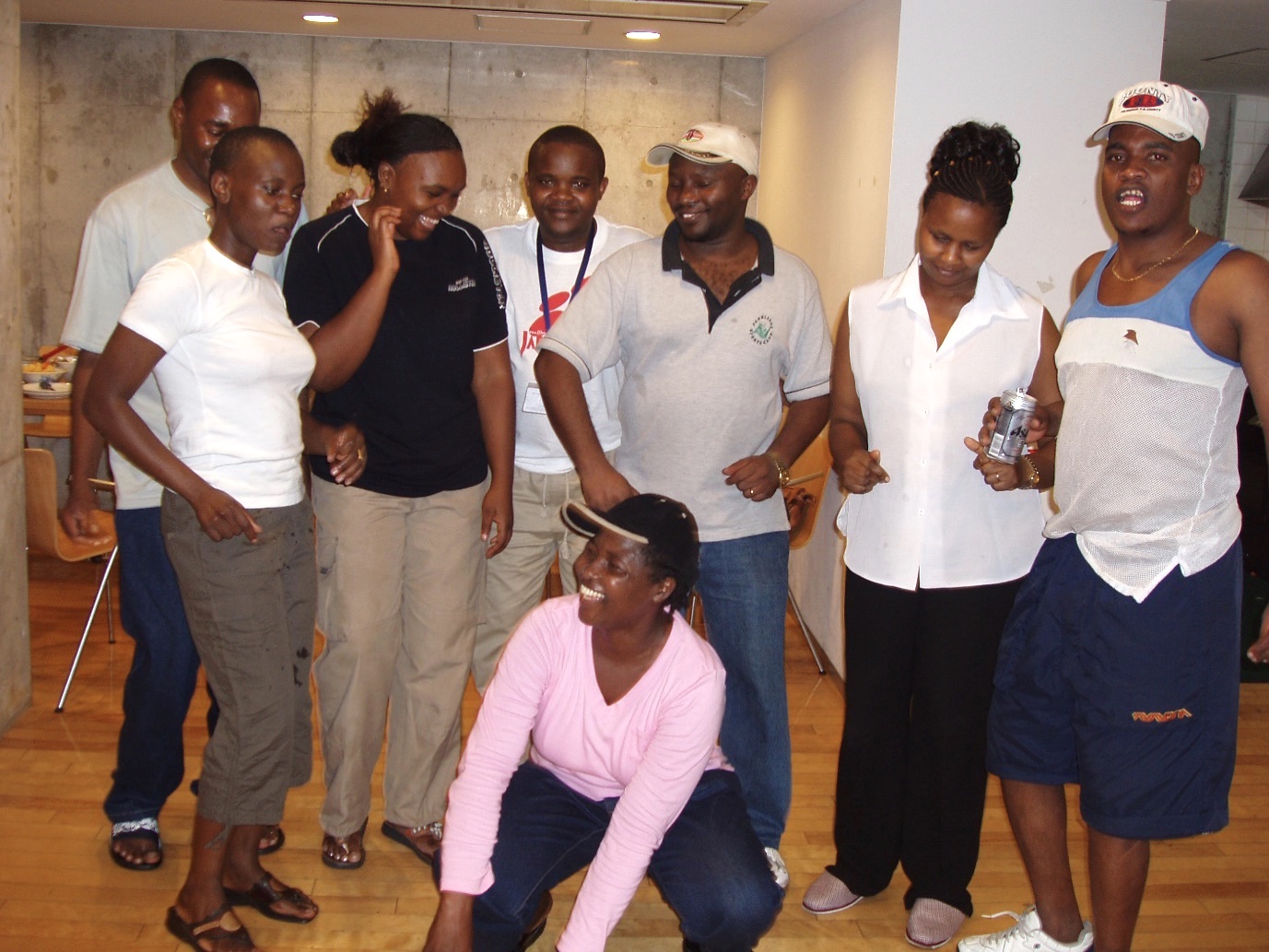
At a party with friends during the weekend in Odaiba
Social events organized by GRIPS were also memorable. I recall attending an event with Prof. Hashimoto, who taught us about SMEs. During the event, I had the chance to dress in a yukata and bond with our lecturers, learning about Japanese culture in a relaxed and enjoyable setting.
Studying and exploring Japan with friends from the Philippines, Sri Lanka, and Uganda was fantastic. We would study, eat, and visit various tourist attractions together during our free time. One highlight was visiting Tokyo Disneyland and partaking in the enjoyable activities it offered.
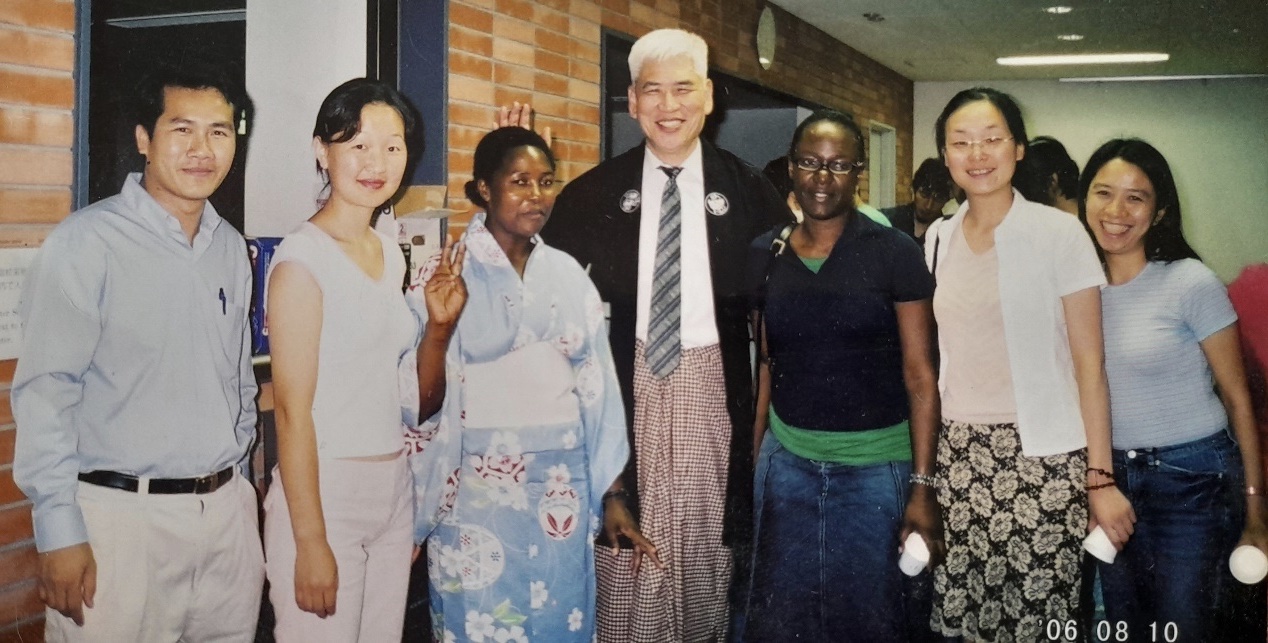
Prof. Hashimoto with some of the 2005/06 Public Policy Program students during
a social function at GRIPS
The Japanese culture and the kindness of the people left a lasting impression on me. I miss the delicious food such as sushi, sukiyaki, tempura, onigiri, and maguro. I also miss experiencing the relaxing onsen, the spectacular Summer fireworks, climbing Tokyo Tower, and many other things. The efficient multi-modal transportation system, including the shinkansen, JAL, and subway, along with the clean environment and excellent security, are among the aspects that bring back cherished memories of Japan.
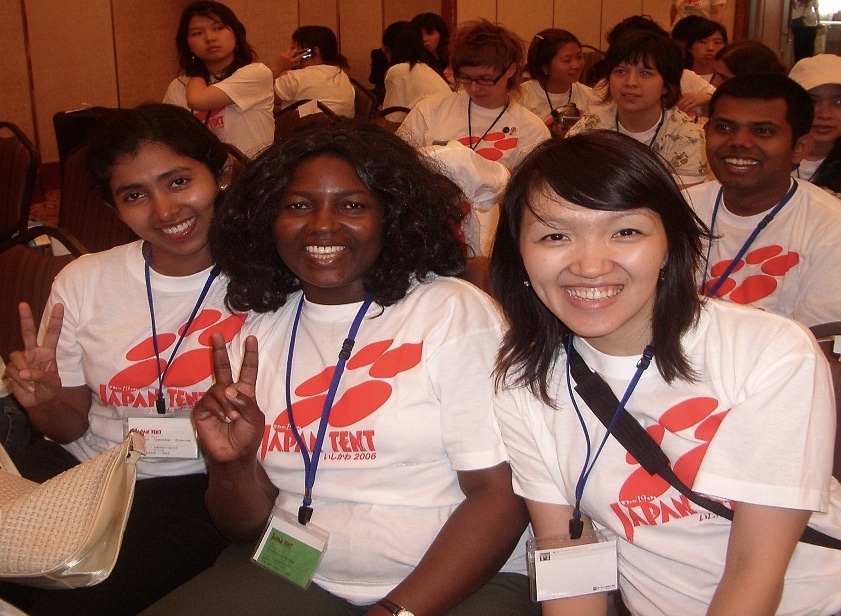
With colleagues from GRIPS who participated in the 19th
JAPAN TENT in August 2006 in Kanazawa, Ishikawa
Another significant memory was participating in the 19th Japan Tent in Kanazawa and Wajima, in Ishikawa Prefecture. This event provided an opportunity for overseas exchange students to share their dreams and exchange opinions about Japanese society, culture, and living. The theme for that year's Japan Tent was "Love for our Hometown," which allowed me to understand the importance of treasuring and appreciating our own culture while experiencing Japanese customs and the kindness of the Japanese families during my two homestays there.
Overall, Japan holds a special place in my heart as my second home. I truly miss it and hope to visit again in the future. I often think of my host families and friends, such as Junko Yamasaki, and wonder how they are doing and where they are currently residing.
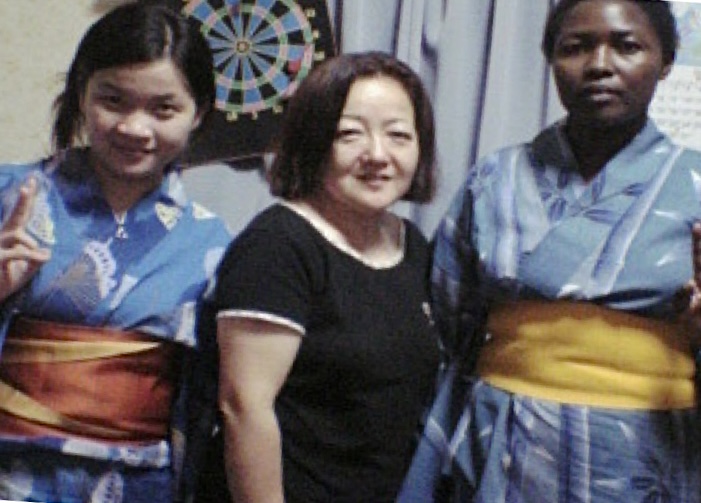
With host mother and fellow participant of JAPAN TENT
in Kanazawa.
If you could give one piece of advice to anyone considering studying at GRIPS what would it be?
If you are considering studying at GRIPS, my advice would be to seize the opportunity without hesitation. GRIPS is a prestigious policy institute that provides exceptional education and research opportunities for students at both the master's and PhD levels. The institute attracts students from diverse professional backgrounds and countries, offering a rich and multicultural learning environment.
One of the key advantages of studying at GRIPS is the wide range of specialties available. Whether your interests lie in economics, public policy, international relations, or other related fields, GRIPS offers a comprehensive selection of programs to choose from. The instructors at GRIPS bring with them extensive experience and expertise, ensuring that you receive a top-notch education.
Based on my own experience, I highly recommend GRIPS as the ideal institution for your studies. The institute's reputation, rigorous academic standards, and diverse student body make it an exceptional place to pursue your educational goals.
How would you like to maintain involved with the School? What do you expect from GRIPS as an alumnus and do you have any suggestions on how to further utilize the GRIPS alumni network?
I would like to remain actively involved with GRIPS by participating in various alumni activities, such as the SDGS Awards competitions. It would be great if GRIPS could organize platforms where alumni can physically gather in Japan or other countries to present their outstanding work that aligns with GRIPS' aspirations. Additionally, virtual discussions on topics of interest would provide opportunities for alumni to connect and share knowledge.
Furthermore, I suggest that GRIPS establishes a platform or provides technical support for implementers of UKI and women and girls beaders to learn from the best international practices in creative arts, particularly from Japanese creative artists. This would contribute to their professional development and enhance their skills in their respective fields.
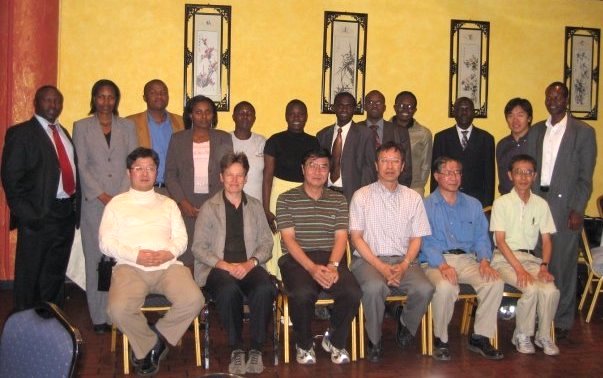
Karin-san and Professors from GRIPS during a luncheon meeting with some of the GRIPS Alumni
at the Tin Tin Restaurant, KICC, Nairobi Kenya 30th September 2008
As an alumnus, I hope that GRIPS occasionally sends delegations consisting of the Director of Admissions and professors to visit alumni around the world. This engagement would help strengthen the international networks of GRIPS and enable discussions on how to further enhance the institute's reputation and attract prospective students to study at GRIPS.
Overall, by fostering alumni engagement through various activities, providing platforms for knowledge exchange, and actively promoting GRIPS' mission and achievements, the institute can maximize the potential of its alumni network and create a strong global community of GRIPS graduates.





